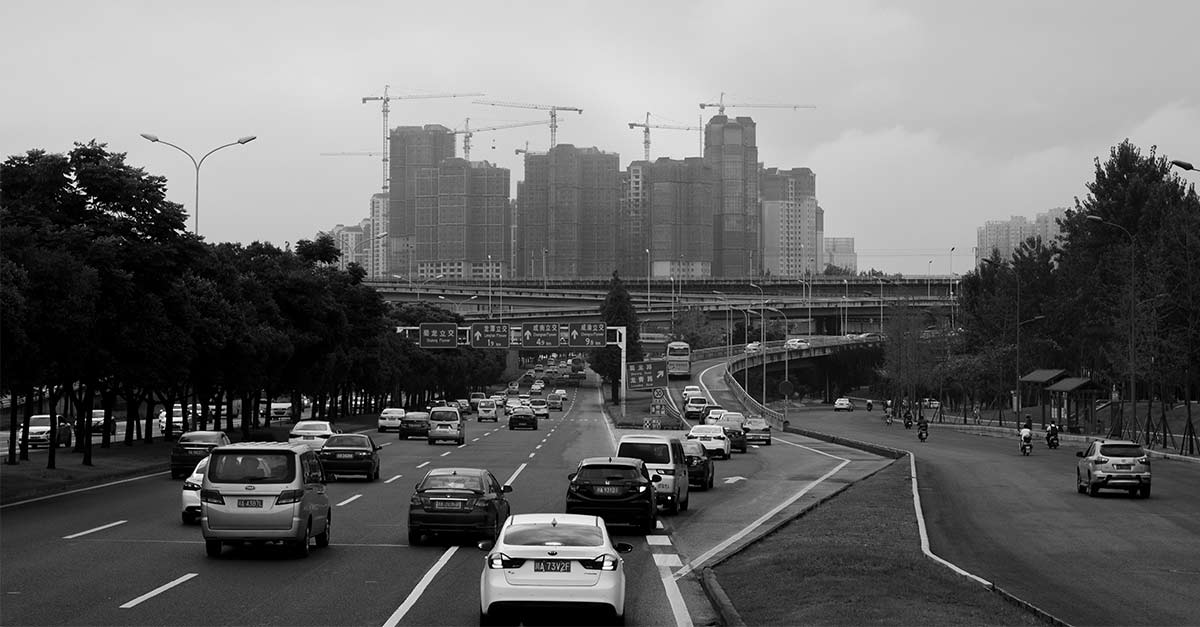Chinese Market Has Immense Potential for DSM USA Exporters
China may have a product exporting based industry, but it is clear the second biggest economy in the world is preparing for more imports. I saw this first-hand traveling through five major cities housing a total of 70 million people during a trip to China with other farm broadcasters and friends of ag. The intense, concentrated population of China is causing change at a rapid pace. I think the United States and Iowa stand in a good position to be suppliers.
Explosion of development
Development hardly describes cities like Xi’an or Chengdu, it is more of an urban explosion. More than once, our tour guides would point to towering apartment buildings or well-populated shopping centers, saying this area was a corn field seven years go. One of my trip  companions tried to count the amount of skyscraper cranes he saw in Xi’an — he was in the 40s after an hour-long bus ride. There is a flock to the cities, highly encouraged by the Chinese government, presenting a whole new set of needs for food, fuel and fiber, which American producers are all too ready to supply.
companions tried to count the amount of skyscraper cranes he saw in Xi’an — he was in the 40s after an hour-long bus ride. There is a flock to the cities, highly encouraged by the Chinese government, presenting a whole new set of needs for food, fuel and fiber, which American producers are all too ready to supply.
The economy of market scale is completely different in China. With incomes still growing, our tour guides told us the average city income is ¥42,000 yuan a year, around $6,000. The buying power of one person doesn’t stretch too far. Looking around, you would see a group of friends sharing a single treat from a food vendor. In the bars, you would see one or two people at a table having a drink. Many of us asked each other, how can some of these stands survive? But it required a cultural shift in thinking, with an incredible population, the goal of a stand wasn’t to sell several items to one person but to sell incremental items to dozens of people. Buying power was not seen as a dollar, but many pennies. And in the future, there is much room for a growing middle class to buy even more.
Large workforce
 A comparatively smaller income goes together with a large supply of workers. As China transitions from a product-based economy to service-based, with increasing technology stemming the need for manual labor, the workers in the country are plenty. There were many times our group entered a restaurant or shopping center and found double the workers you would find in the U.S., including many positions that did not seem to do much more than stand and watch the door. There is ample opportunity for an expansion in work. Furthermore, it would be advantageous to raise incomes in other countries precisely because it creates more selling power for us.
A comparatively smaller income goes together with a large supply of workers. As China transitions from a product-based economy to service-based, with increasing technology stemming the need for manual labor, the workers in the country are plenty. There were many times our group entered a restaurant or shopping center and found double the workers you would find in the U.S., including many positions that did not seem to do much more than stand and watch the door. There is ample opportunity for an expansion in work. Furthermore, it would be advantageous to raise incomes in other countries precisely because it creates more selling power for us.
The trip was based on agriculture and the tremendous opportunities and challenges there for agriculture businesses. In the 1970s, China’s infrastructure was rough, so it declared that each province had to produce enough food to feed the individual populations. Self-sustaining quotas extended to wheat, rice and corn. To this day, they still produce enough in those areas. However, they’re out of land. China is mostly mountainous — the average height of the country is 4,000 feet above sea level. Most of the population is squished into the east coast where the good production land is. They cannot make enough soybeans to produce what they need without importing in other areas.
Demand for Iowa products
With a rising mobile class, China has a greater demand for meat products. It tries to produce enough pork on its own, housing nearly 400 million hogs, but lacks the needed feed supply, which is why Iowa sends about a third of its soybeans over to China.
Not only does China want our food products, but it kind of needs them. In a conversation our group had with former Governor, now U.S. Ambassador, Terry Branstad, he stated exports could double if trade disputes are resolved. Regardless of politics surrounding trade, China is too important of a market to ignore. There is great opportunity found through urbanization, a new middle class and land limitations.
An open Chinese market has immense potential for all Iowan exporters.
Through the Global DSM initiative, the Greater Des Moines Partnership works to establish Greater Des Moines (DSM) as a global community by bolstering global trade and foreign investments and leveraging international talent.